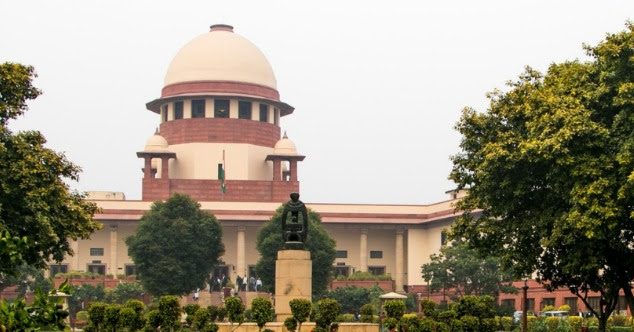Analysis
Monthly Review: July 2021
The Supreme Court made important decisions on land acquisition,and dismissed the review petition against the Maratha judgment.

Key highlights of the Supreme Court’s work this month include important judgments on religious freedom, equality and judicial independence, and the retirement of Justice Ashok Bhushan. Further, the Court began hearing the challenge to restitution of conjugal rights, and a petition seeking the implementation of the Shreya Singhal judgment.
3 Important Decisions
The Court upheld Tamil Nadu’s revival of its State laws on land acquisition. These allowed the State to side-step the provisions of the 2013 Land Acquisition Act that required consent and social impact assessments, among other things. In our post, we trace the multiple attempts made by the Tamil Nadu government to revive land acquisition laws. In light of the judgment, we ask whether states can now retrospectively circumvent Central Laws.
During the second wave of the pandemic, the Court invoked the right to health to restrict government approved religious gatherings in Uttar Pradesh. On this basis, both the Kanwar Yatra in Uttar Pradesh and relaxations for Bakrid in Kerala were suspended. We examine how the court has balanced the right to religion with the right to health in these cases.
In a short order, a five-judge Bench dismissed the Union’s review petition on the Maratha judgment. They said there was no reason to reconsider the interpretation of the 102nd Amendment and held that only the Union (and not states) has the power to identify ‘backward classes’. We look at the implications of this order for the reservation of OBCs.
Tracked and Explained
On 8th July, the Supreme Court heard the challenge to the legal framework on restitution of conjugal rights. The petition was filed on the grounds that although the provisions are gender neutral, they impose an added burden on women, and violate women’s right to privacy and individual autonomy. We are tracking the case.
Despite the Shreya Singhal v Union of India judgment that declared section 66A of the Information Technology Act, 2000 unconstitutional, there have been charges under the provision across India. We are tracking the miscellaneous petition that seeks the implementation of the Supreme Court’s judgment in Shreya Singhal. You can access a summary of the miscellaneous petition here.
The Javed Abidi Foundation, a disability rights group, has filed a petition before the Supreme Court to make online learning and examinations accessible to all. We have covered developments in this PIL here.
Research
A Bench led by Kaul J noted that submissions made in Courts were too long and complex, leading to similarly long and complex judgments. We look at the nature and scheduling of oral arguments and written submissions in India’s, the UK’s and three US’s apex courts.
In light of the recent developments in Shreya Singhal being heard, we trace the history of the litigation around Section 66A of the Information Technology Act, 2000.
The Union has filed a transfer petition, requesting the Supreme Court to hear all cases related to the Information Technology (Intermediary Guidelines and Digital Media Ethics Code) Rules, 2021. We look at the challenges to these rules, and the reason a transfer petition is sought.
Court Data
We look at regional representation of different High Courts on the Supreme Court Bench since 1985. We compare this with the sanctioned strength of different High Courts.
The number of PILs filed before the Supreme Court has increased 185% in 2019. In our Court data post, we look at the number and type of PILs since 1985.
Justice Bhushan’s Retirement
Early this month, Justice Ashok Bhushan retired. We review his term through numbers and key important judgments including the Ayodhya dispute.
